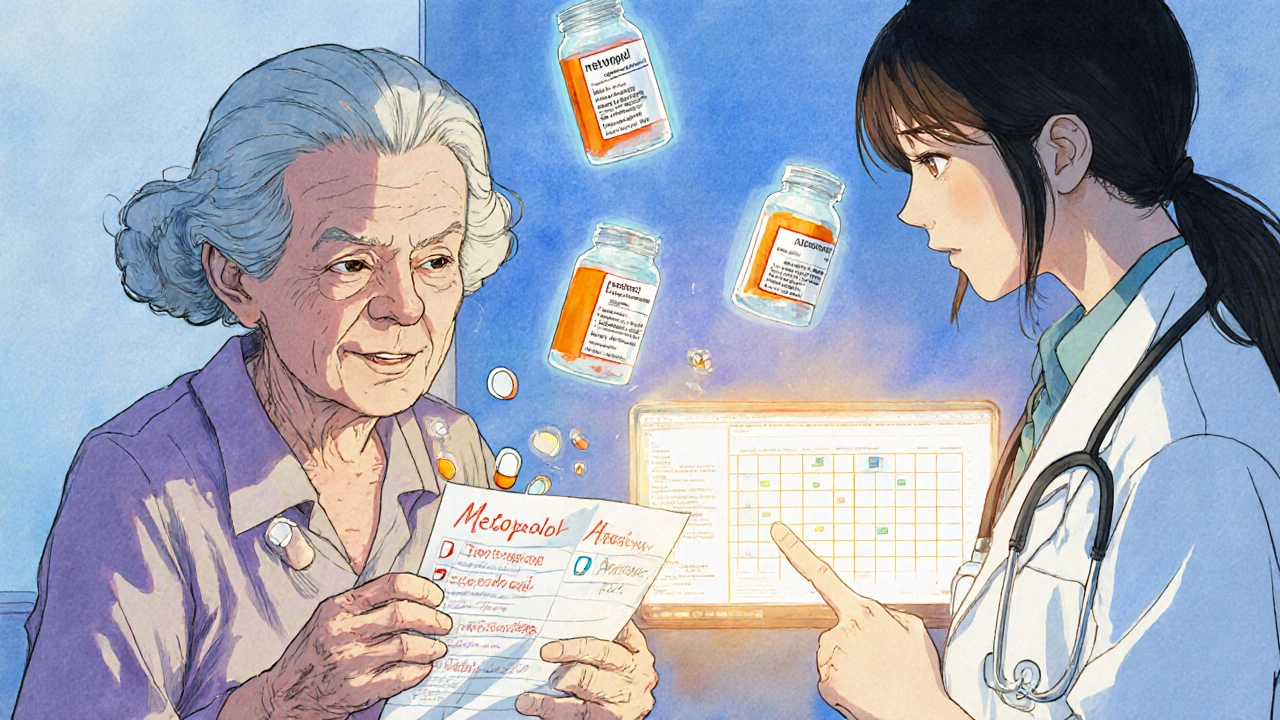Avoid Drug Duplication: Stop Taking the Same Medicine Twice
When you take two pills that do the same thing—like buying both ibuprofen, a common pain reliever and anti-inflammatory and Advil, a brand name for ibuprofen—you’re not doubling the benefit. You’re doubling the risk. This is drug duplication, and it’s one of the most common and dangerous mistakes people make with their medications. It’s not just about taking too much. It’s about your liver, your kidneys, your stomach, and even your heart getting hit with more than they can handle—all because no one checked what you were already taking.
Drug duplication doesn’t just happen with over-the-counter stuff. It shows up in prescriptions too. Someone gets prescribed sertraline, an SSRI antidepressant for depression, then later sees a different doctor who prescribes fluoxetine, another SSRI without knowing the first one was already in use. Or they take benzodiazepines, sedatives used for anxiety and sleep for insomnia, then add a sleep aid with the same active ingredient. These aren’t rare cases. They’re everyday errors that lead to dizziness, confusion, falls, liver damage, and even hospital stays. The FDA reports that over 100,000 emergency visits each year are tied to medication errors—and drug duplication is a top cause.
Why does this keep happening? Because people don’t keep a list. Because doctors don’t talk to each other. Because pharmacies don’t always flag overlaps. And because we assume if a pill looks different, it must be different. It’s not. The same chemical can be sold under ten different names. You might be taking amoxicillin, an antibiotic from one doctor and Cenmox, a brand version of amoxicillin from another, thinking you’re treating two different infections. You’re not. You’re just overloading your system. The fix isn’t complicated. Keep a written or digital list of every pill, supplement, and OTC drug you take. Bring it to every appointment. Ask your pharmacist: "Is this the same as something I’m already taking?" And don’t be shy—ask your doctor to cross-check your list every time you get a new prescription. This isn’t just advice. It’s a survival habit.
The posts below show real cases where drug duplication led to serious side effects—from QT prolongation and anticholinergic brain fog to MAOI dietary disasters and benzodiazepine stacking. You’ll find exact examples of what to watch for, how to spot hidden duplicates, and how to talk to your care team so you never get caught in the same trap again.
How to Avoid Duplicate Medications After Specialist Visits
Learn how seniors can avoid dangerous duplicate medications after specialist visits by keeping a full medication list, using one pharmacy, asking the right questions, and working with their primary care doctor to prevent harmful drug overlaps.
